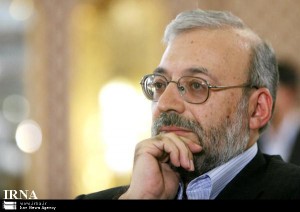Iranian Judiciary’s High Council of Human Rights Reacts to Sattar Beheshti’s Prison Death

"The Human Rights Council hopes that the immediate and determined prosecution of the case be regarded as a clear example of the Judiciary's strong determination in dealing with any violation of the law and human rights," the statement concluded.
After several days of silence on the prison death of blogger Sattar Beheshti, the Iranian Judiciary’s Human Rights Council stated in a press release today, November 11, 2012, that by special order of Sadeq Larijani, Head of the Judiciary, “all aspects of the issue have come under careful review, and the Judiciary Spokesperson and other related officials will soon inform the public of results of the investigation.” The statement adds that “any person who is involved in the case, through negligence or fault, will be subjected to immediate, strong, and zero-tolerance prosecution by the country’s Judicial system.”
Beheshti, a 35-year-old blogger, was arrested on October 30 at his home in Tehran. On November 6 authorities contacted his family to inform them of his death in custody without further explanation. A source close to Sattar Beheshti’s family told the International Campaign for Human Rights in Iran that the family had been threatened with arrest if they spoke to the media. The source told the Campaign that the blogger’s family remains under unofficial house arrest.
Related links:
-Blogger Dies in Detention, Torture Suspected
– Signs of Torture on Body of Deceased Blogger, Family Under Pressure to Keep Silent
The International Campaign for Human Rights in Iran demanded in a November 8 press release that the Iranian Judiciary begin immediate investigations into the death of Sattar Behshti, who died during interrogations in prison, and that it announce the names of those responsible and hold them accountable. In June 2011, the Campaign published a report documenting the deaths of 17 prisoners of conscience inside Iranian prisons since 2002, expressing concern that no investigations were ever held to hold accountable the individuals responsible for the events that led to the loss of these prisoners’ lives.
“In the Islamic Republic of Iran, the rights of all citizens, even suspects and detainees, have been and will be preserved based on the current rules, including the law of respecting the legitimate freedom and protecting civil rights approved in 2003,” the Judiciary’s High Council on Human Rights said in its statement.






